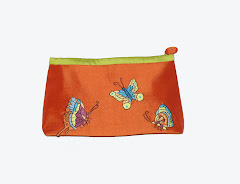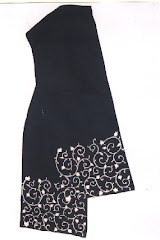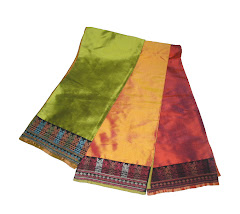At this point we have two incredible recipients for the Pillow Dreams Project. They include Open Arms Infant Home in Malawi Africa, where our initial inspiration for Pillow Dreams came from, and KOTO, a training facility for homeless teens in Vietnam. We have visited both these organizations several times to ensure that the funds we donate are being used correctly. We want to ensure that our donations go to the right place, that is to the children directly. With these two recipients we can guarantee that they do.
To see all our products and to order online, please go to the Pillow Dreams website: http://www.pillowdreamsproject.com/
Open Arms - Malawi
Open Arms is a wonderful non profit organization that serves as a transition home for orphans birth to age five who have lost their parents to AIDS. It cares for about 40 children at any given time. Its loving and responsible Malawian staff cares for these children by feeding and clothing them, and giving them a true feeling of family. The children stay until they are two years old and then Open Arms does what it can to transition each child back to its extended families in its village of origin. Open Arms works very closely with the families to ensure that the transition goes smoothly and to teach them how to properly care for and feed the child. Children who have no extended family do not return to the village, but are placed in other orphanages or in a home for older children known as the Harrogate House. We came to know Open Arms very well in 2003 when we volunteered there, Renee for two weeks and Laura for six. We fell in love with the children and the staff, but also with their efforts at making the world a better place for children in need. They became our inspiration and led us to create The Pillow Dreams Project. Laura returned to Open Arms in 2004 for a month and vowed to make it a part of her life forever. Today we are supporting Open Arms Infant home with 50% of our African product profits. This money goes to making a difference in the lives of children who have lost everything and need our help so desperately.
If you would like to take a look at the Open Arms website go to http://www.openarmsmalawi.org/


Open Arms
Big Shoes to Fill
KOTO
KOTO (Know One Teach One) is the recipient non profit that receives 50% of our Asian pillow profits. KOTO is a non profit organization that takes homeless teens off the streets and trains them for 18 months to gain skills in the hospitality business and the English language. However, the task of training these teens is a lot more than teaching them a few new skills. They have all faced great hardship and need much more to change their lives around. KOTO is dedicated to helping these kids make the best of their lives by creating a family-like environment, where each child feels he or she is are safe and belongs. Every 18 months, 100% of the students are placed in jobs in hotels or restaurants in and around Hanoi.
With your help, we have now sponsored one student through the KOTO Project and have begun sponsoring a second. With their new skills in hospitality, English and their new family at KOTO, they are bound to do great things and we are proud to have been a small part of their success.
If you would like to learn more about KOTO visit their website at http:/www.koto.com.au/

Jimmy Pham- Founder of Koto and Renee
Mr. Tinh, our first KOTO graduate

Stdents at Koto
Craft Link
 Lan- Maniger of Craft Link and Renee
Lan- Maniger of Craft Link and Renee
 Pom Coong Village - West of Hanoi
Pom Coong Village - West of Hanoi

Click below to view a brief video of the KOTO project
" Never doubt that a small group of thoughtful people can change the world. Indeed it is the only thing that ever has." -Margaret Mead
Denver Post - Wednesday, July 02, 2008
From a tiny spare bedroom turned international headquarters, two Denver women are quietly trying to right an off- kilter world — one throw pillow at a time.
It all started when Laura Rietmeijer was an 18-year-old high school senior, fresh off a plane from her middle-class life in Denver, and found herself catapulted into the middle of the AIDS pandemic in Africa. The year was 2003 and she was in Malawi, having somewhat naively signed on for an ambitious, six-week volunteer project at an AIDS orphanage.
That trip planted the seeds of charitable entrepreneurship that blossomed into a home-based business that sells exotic throw pillows made by village craftswomen and filters some of the profits back into international nonprofits.
As Rietmeijer wandered the streets of Blantyre in southern Malawi in the days before her assignment, she wondered how she could possibly make a dent in such decimation from disease.
"I cried the first whole three days," she remembers.
Her mother, Renee Boele (pronounced Rennie), had come along to make sure her daughter was really up to the challenge. They both felt paralyzed by the scale of the need in Africa. Then, on their first day in a home for babies under 2, most of whom already had lost their parents to AIDS, something extraordinary happened. Tiny hands stretched out all around the two Coloradans. Up, up, up. The babies only wanted to be held, wanted to be hugged.
"OK," Rietmeijer thought to herself. "Hugging this child right now is something I can do."
It became a metaphor for what was soon to come for mother and daughter.
They wanted to do more, but what could two ordinary people do? The answer came a year later when Boele accompanied her husband, Dr. Kees Rietmeijer, an AIDS researcher now with the Denver Public Health Department, on a trip to Thailand and Vietnam to study the spread of sexually transmitted diseases there.
As a world traveler, the Dutch-born Boele had long been fascinated by the way ethnic and tribal identities are often expressed through traditional cloth and embroidery. At a dinner party one night in Hanoi, she met Dr. Mary Kamb, who was in Vietnam working for the Centers for Disease Control.
Their talk turned to Boele's love of design. Kamb told her about an unusual Vietnamese nonprofit called Craft Link that bought the beautiful piecework made by village women in remote areas of the country and turned it into crafts for export.
In that moment, the Pillow Dreams Project was born.
Global thinking
In early 2005, Boele, with her daughter as her partner, launched the business by selling imported decorative pillows out of an upstairs bedroom of their central Denver home. "Everyone needs pillows," Boele figured.
They contracted with Craft Link to buy finished pillowcases made from the designs of village women. It gave work not only to the villagers but also to the women who worked for Craft Link in Hanoi. Boele insisted she would work only with companies that adhered to fair-trade practices. It all fit.
But there was one important piece missing.
They considered making Pillow Dreams a nonprofit, but the logistics were too daunting for Boele, a former florist, and her daughter, a college student studying to be a teacher.
Instead they decided to become a for-profit business, but give half of all their proceeds to two designated children's charities: An orphanage in Malawi called Open Arms, where Rietmeijer had volunteered as a teenager, and a Vietnamese organization called Know One, Teach One (KOTO), which gives housing and job training to homeless teenagers.
Fluffing the business
As enormous boxes of imported pillowcases arrived with a thud on their doorstep, the two women quietly began to sell their wares at private trunk shows. More recently they expanded to the Internet (pillowdreamsproject.com). Their advertising strategy has been solely word of mouth. They even set up a display in a Denver dentist's office.
The pillows are priced between $20 and $40 — well under what hand-crafted imported pillows would fetch in high-end home stores.
"We don't run in high-end circles," Rietmeijer says with a shrug. "We started out just selling them to our friends. This way they don't feel like they're being ripped off, and they know they are helping."
Her mother adds that business continues to grow because of the stunning artistry in each pillow. "We have women who say, 'I do needlework and I could never do that.' "
Cool designs, hot ticket
Today they have added patterns from Thailand and South Africa to their inventory. Again, they contracted only with free-trade, nonprofit organizations in those countries to buy designs directly from village women. The idea is to give the artisans a way to make a living but still remain in their homes.
So far they estimate they have sold close to 2,000 pillows. Boele says the Vietnamese pillows tend to be more delicate and use softer silk. The ones from Thailand are more geometric and bold. The African pillows are popular for their contemporary look.
Boele and Rietmeijer hope to soon add designs from South America and India.
"These are just amazing women," says Jill Winfield, president of Open Arms USA, which sponsors the orphanage in Malawi. Unlike many good causes, she says, Pillow Dreams works on two fronts. It gives work to the women who make the pillows and also gives part of the proceeds to unrelated charities.
Often, Winfield says, charities working in developing nations face the challenge of getting people involved because the need seems too large.
"We hear that a lot. People say: 'There are millions of children and babies who are orphans in Africa. What's the point of helping just a handful?' "But it's all part of the collective effort. If you have a thousand people doing one thing, then it really does end up making a difference."

















.jpg)


%246.00.jpg)
++%2413.00.jpg)
